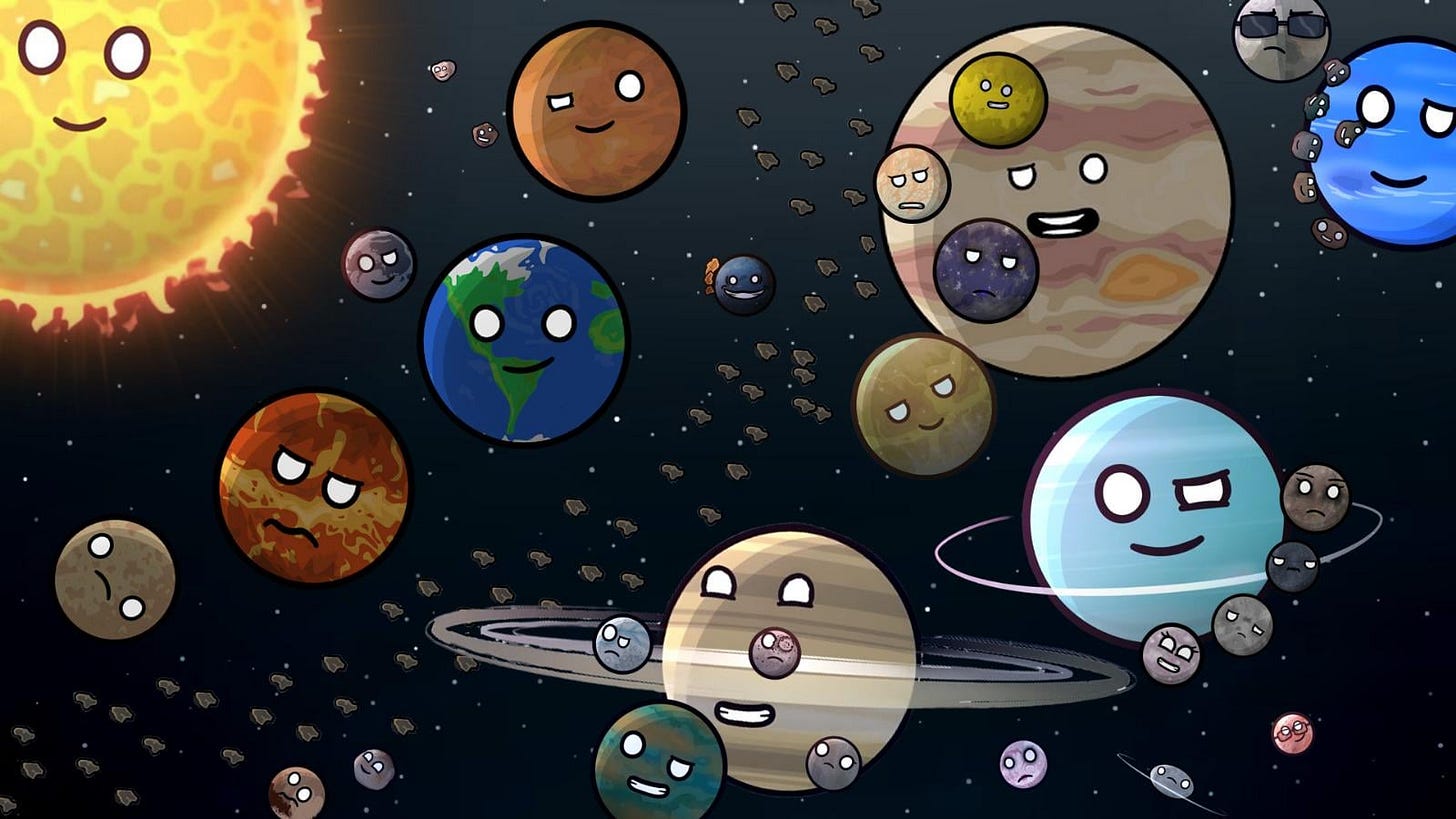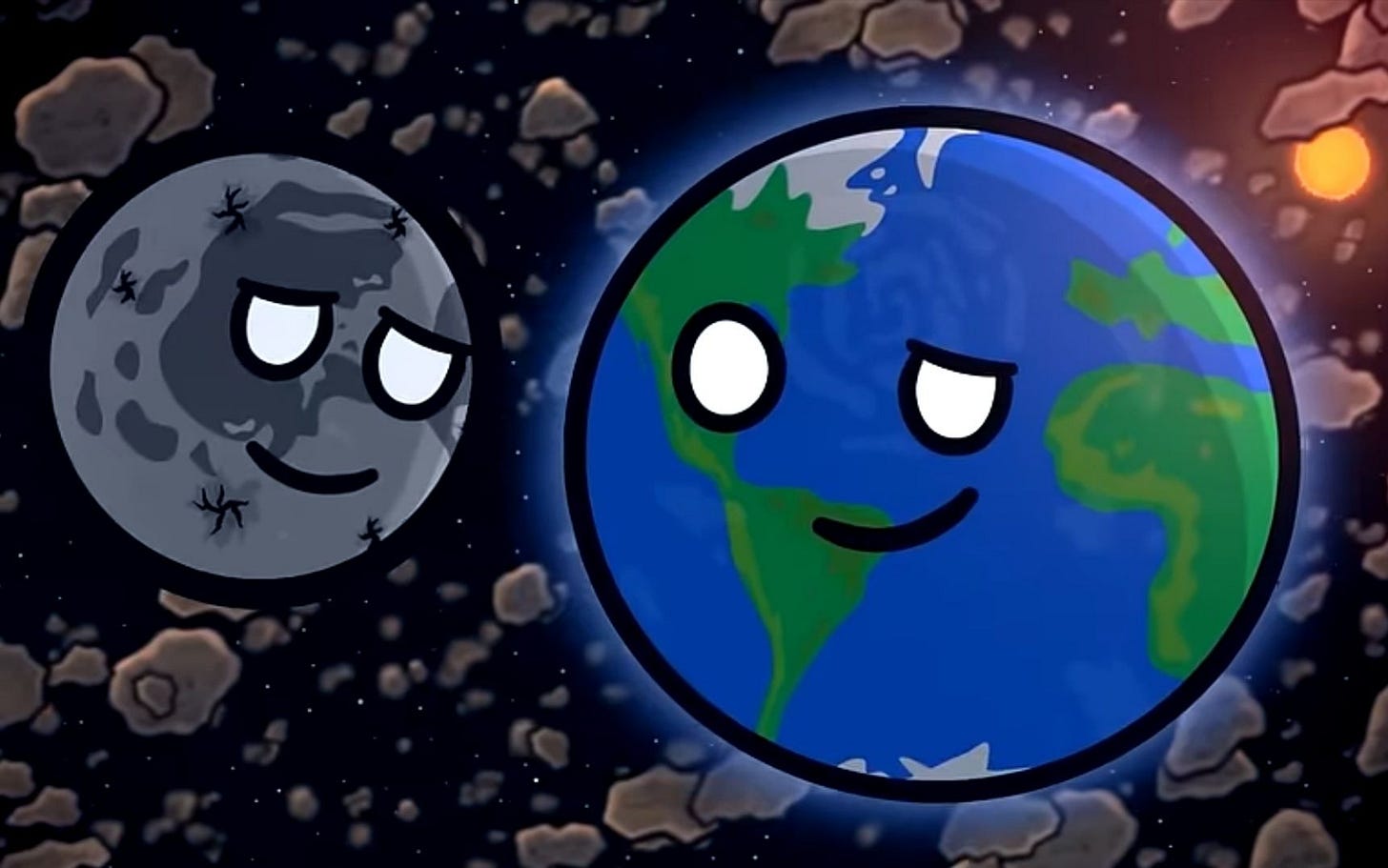The history of the Solar System is technically history—we do stem from stardust, as it stands. So this piece fits with the sub's specs, kind of. Let’s say this is very, very distant history.
All the same, there is a YouTube channel that has caught the eye lately.
Solarballs is an offshoot of Mr. Spherical, a channel that focuses on geopolitical and historical satire by referencing countries and peoples as balls. This includes WW2 stories (Hitler and Churchill balls) and also highlights contemporary issues and conflicts.
Solarballs continues to show humans as “balls” by expanding the premise to the Solar System and the universe. We still see the USA, UK, Russia, China, etc. balls in Solarballs, but they mainly squabble over celestial events, missions, and related happenings.
Solarballs offers educational content, mixed with an overarching narrative and given arcs.
The Sun and all other celestial bodies have their own personalities and behaviours:
The Sun - aggressive, and brash but caring for the well-being of his planets and the order of his solar system.
Mercury - insecure over his small size but a loving friend to the Sun and the other planets.
Venus - hot-headed and gruff, but somewhat insecure but also a good friend to the other bodies
Earth - can be vain as the only planet with life but also dutiful to his “Earthlings” (namely humans and all other life on his surface).
Mars - level-headed but sometimes overly dutiful to his friends
Jupiter - the largest of the planets and very wise and knowledgeable, but wracked by guilt over a past indiscretion.
Saturn - charming and occasionally vain over his ring system, but a very loyal friend to Jupiter and the other planets.
Uranus - sombre and quiet but very insecure about his name.
Neptune - diligent and erudite but somewhat loopy given his extreme orbit from the Sun, and isolation from the other planets.
The moons also have their personas, such as The Moon (or Luna), Ganymede, Titan, Europa, Io, Triton, Callisto, Umbriel, Titania, etc. Luna, for instance, is very close to the Earth given their orbital proximity. And the Galilean Moons are close to and look up to Jupiter, given their respective orbits also.
Recent arcs, such as the discovery of Planet X, Jupiter’s banishment following the destruction of early rocky planets, and the adventures of Astrodude, all make great viewing.
As an educational show, it covers a lot of groundwork in astrophysics and solar system facts, for people of all ages to enjoy. Topics covered include the sizes of all planets, why Pluto was demoted from planetary status, how Saturn gained its rings, why Triton orbits Neptune in the opposite direction to fellow Neptunian moons and the effect of Jupiter’s gravity on the asteroid belt and the wider solar system.
Recent arcs such as The Big Bang, Search for Planet X, and Planet X Returns also touch on the origin of the Sun and the Solar System, and the rumoured planet 9 in the far reaches of the Solar System.
For those with knowledge of the solar system, or astronomy/astrophysics in general, and also the uninitiated, it provides both informative points and entertaining content.





